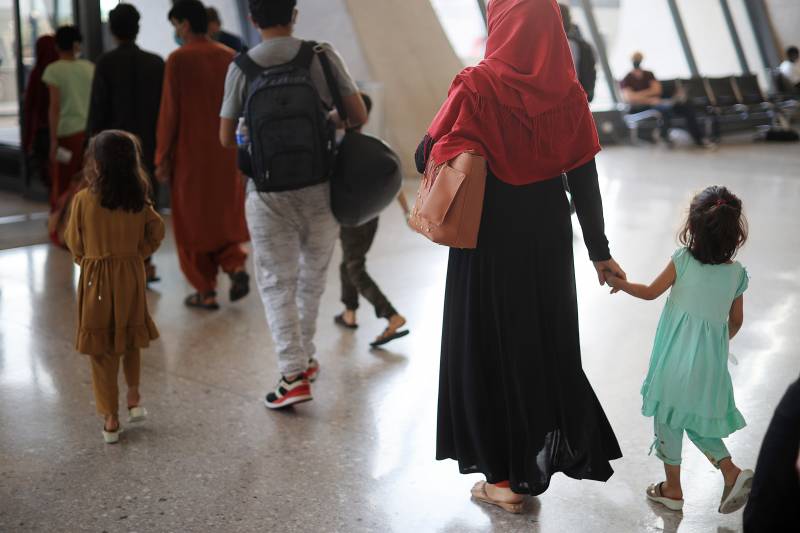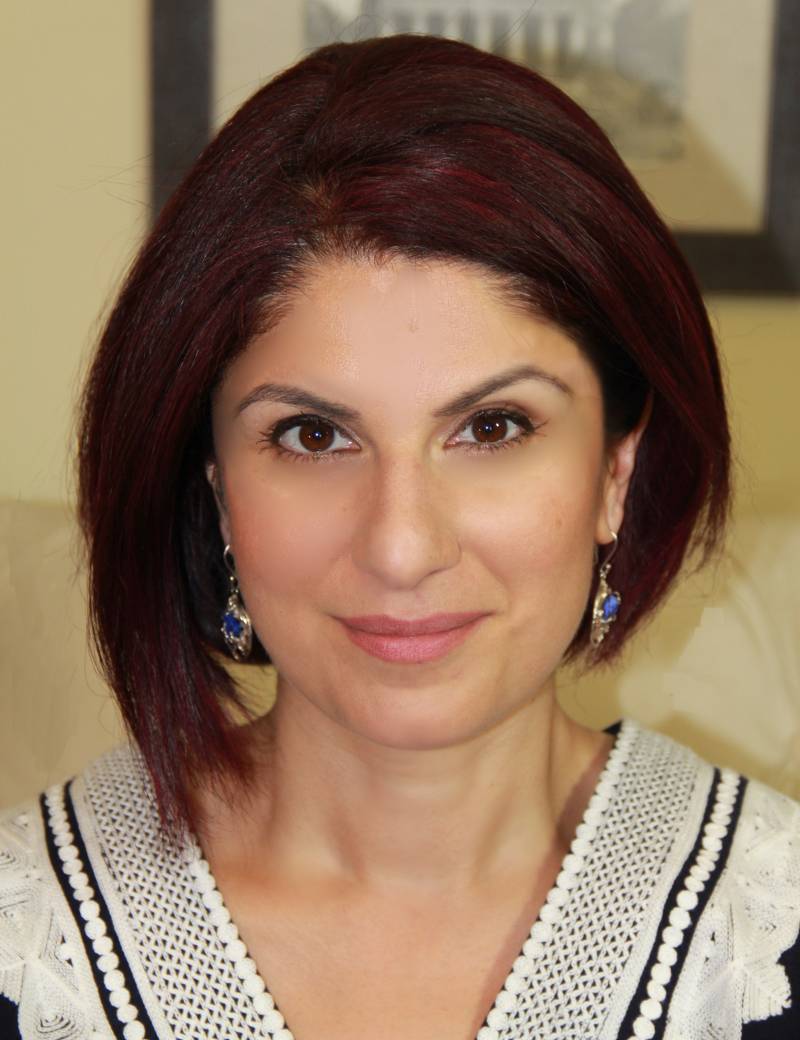The week Afghanistan fell to the Taliban, I had gone out of town with my parents and in-laws. While my children played, their parents and grandparents sat riveted to our phones, speaking in fragments. Thoughts interrupted. Plates half eaten. Nothing was whole anymore.
It is too cruel to ask if it hurts more the first or second time a homeland is lost. I know one never becomes numb to it. Across social media, family and friends were relatively silent as one province after another fell. Forty years of conflict means that generations—plural—of Afghans carry with them some form of trauma or loss. The headlines of that week were making an inevitability clear. We braced ourselves for what might unfold in Kabul, the seat of power.

I was thinking of my parents when I wrote a line in my most recent novel, Sparks Like Stars. “Your Kabul is gone,” a soldier shouts at a girl freshly orphaned and traumatized by the 1978 coup. New flags were raised then just as they were this month. In the stretches of time when Afghanistan wasn’t burying empires, it has thrived and progressed. Both my parents left Kabul in their 20s and never saw a day of conflict. The city has a sweetness to people who grew up wandering the bustling markets and storied gardens and their hearts break when they see these sites defiled by war.
Images are the worst. They offer no buffer. Some have been shared and reshared like the one of a mother passing her baby over the barbed wire fence of the airport’s walls. I wonder if she felt relief when she stared into her empty hands. We saw people fall from the sky. Twenty years ago, I stood on a Brooklyn street while, a few miles away, people leaped to their deaths rather than be consumed by toppled towers.
Like so many other displaced communities, we have people “back home.” We have schools and non-profits we support. Our phones have been abuzz with international calls. The technology is deceiving. Their pleas are crisp and clear as if they were half a block and not half a world away. Surely, there must be someone we can call on their behalf, some magical email address to which we can submit their names and the names of their children. They are afraid. A journalist lost a loved one in a Taliban attack targeting him. One laid pipes alongside Americans and Germans. They make their case to us. They speak English. They have degrees. Their daughters are bright and promising. They will pray for us for all their days if we can just find a way to lift them over the huddled masses yearning to breathe free and slip them through the blocked gates of the airport.


9(MDAxOTAwOTE4MDEyMTkxMDAzNjczZDljZA004))

